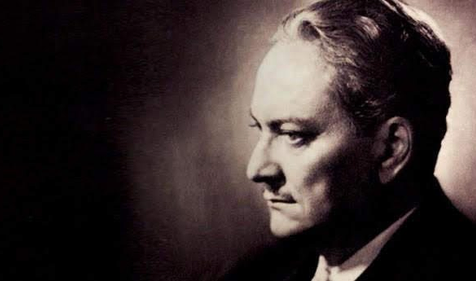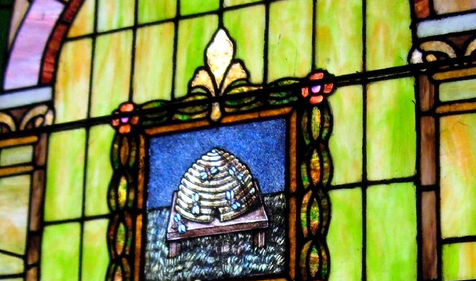Ill. William (Sandy) Karstens, 33° shares his thoughts on the perception of masculinity and what it means to "be a man" in today's society.
Where do we begin on such a topic as manhood?
Few would argue that the issue of masculinity is fraught with long-standing historical and social roles and stereotypes, some good, some not so good. Our culture is full of superficial measures of what being a man should look like: from the tough, macho image to the hyper-competitive win-at-any-cost mentality. Most of us can identify typical male behavioral stereotypes, and we probably all agree that some of these characteristics are generally not desirable in society. One might argue they are not particularly good for men’s health either.
What we are looking for is behavior that promotes the betterment of society and not disharmony. While we can all speculate about the reasons for male (and female) behavior, whether biological or social, as it relates to very early humans, our interest is in the modern man. We propose that rather than an individual burdened by dominant and aggressive behaviors formed long ago, this modern man should exhibit more chivalric characteristics: humility, faith, integrity, justice, and courage. These qualities serve to enhance, and not detract from, the well-being of society.
Let’s look more closely at the stereotypical male, since after all, this is the role model a man will follow if there aren’t any other examples out there. Psychologist Ellen Hendriksen from Boston University talks about what she calls toxic masculinity or the “man in a box” trapped by a set of narrow rules laid out that define being a man.
These include:
- Dominance over everyone else
- No emotions other than bravado or rage
- Winning, never losing
- Don’t depend on anyone
- Suffer pain in silence
- Don’t do anything that could be construed as weakness
Further, hyper-masculine men are especially dominant over men who find themselves outside the box. In other words, If I’m trapped inside this confining box, you should be too!
So, if these are just roles played by males presumably because that’s what society tells them to be, is there something deeper, waiting to get out, to transcend these stereotypes? Richard Rohr, a Franciscan priest who founded the Center for Action and Contemplation, talks of the “shadow self”—any part of ourselves or our institutions that we try to hide or deny because it seems socially unacceptable. This, he says, “has led to our success-driven culture that scorns failure, powerlessness, and any form of poverty. Yet Jesus begins his Sermon on the Mount by praising ‘the poor in spirit.’ Nonviolence, weakness, and simplicity are also part of the American shadow self. We avoid the very things that Jesus praises, and we try to project a strong, secure, successful image to ourselves and the world. We reject vulnerability and seek dominance instead.” So, over 2,000 years ago Jesus was trying to promote a very different image. Perhaps there’s hope!

Unfortunately, the stereotypical male was further solidified in more recent history, when studies in the 1940s by Rudolph Schenkel on captured wolves introduced the idea of the now-familiar alpha wolf: the dominant wolf battling for supremacy and rule within the pack. In 1970, a book written by L. David Mech perpetuated this notion of alpha and beta wolves with “the alphas who were domineering, aggressive, and violent, and used these qualities to fight off rivals to become the supreme leader of the pack.” It didn’t take long for these ideas to be applied to humans—usually males—thus fitting in with the accepted model of the dominating, aggressive male.
So, is the path to being a better man simply the opposite of these characteristics? In a way, yes. But it’s a bit more complicated than that. Hendriksen says that there is nothing toxic about working hard, providing for one’s family, winning at sports, being loyal to friends, or being respected. But I believe that this last characteristic gets at the heart of the matter: at a fundamental level, every human wants to feel respected, valued, recognized, and affirmed
The problem comes about in the ways people try to gain this respect. It certainly varies a lot, and it appears males may not be particularly good at it, as our list above suggests. Common sense tells us one doesn’t gain true respect by dominance and aggression—that’s just control through fear. Being valued or recognized suggests that people come to you for your thoughts and input. Rage, bravado, or winning won’t bring people to your door. In fact, developing true respect as well as that special character that draws people to you rather than away from you takes time, and that’s a problem in a society that insists on instant results!
It takes time to gain experience, to build self-confidence, to develop a strong spiritual center, and to be able to move through life with a humility that can guide anyone through the roughest of storms. In many ways, it’s a constant life project. For this reason, I contend that the Masonic fraternity is uniquely qualified to aid in this transformation.
The fraternity offers constant reminders of good behavior in society: building one’s character as a man, getting along with other people, and helping to find a deeper connection with the Divine. I’m particularly fond of a passage in the 24th degree, Brother of the Forest where the Indian Chief prays, “I seek strength, not to be greater than my brother, but to fight my greatest enemy: myself.”
Maybe more men would find success in life if they worried less about dominating others and more about improving themselves. As the saying goes, “To rule has been the lot of many, but to rule well has been the fortune of but a few.” True leadership provides a rich opportunity to develop confidence in oneself, interact effectively with peers, improve the quality of the organization, and nurture growth in others. Pope Francis tells us that the word “authority” comes from the Latin “augere,” which means to make grow. When exercised correctly, authority implies creating a space where a person can grow. How wonderfully productive!
Leadership within the Masonic fraternity is very different from the workplace. Leading in a volunteer setting requires being even better at using the usual leadership skills: leading by example, delegating and relying on others, motivating, dealing with conflict in a productive manner, and so on. Even more, the Masonic leader has to develop a calm disposition since his influence must promote harmony in the Lodge. Ultimately, true fellowship, spiritual development, the meditative practice of ritual, and the deep enrichment found in the Lodge are all designed to build self-confidence and social development in a way found nowhere else. As the Vermont Master Mason charge states, “Do not measure your importance by your title or your money, but by the texture of your character and the cleanliness of your speech. Make others to know always that a gentleman stands before them.” The teaching of this degree, then, is that it is your duty to make the most and best of yourself!
To close, I’d like to return to the alpha male wolf study mentioned earlier. It turns out that the study was fundamentally flawed in that it didn’t pertain to wolves living in the wild. What researchers found instead, was that wolf packs actually consisted of little nuclear wolf families. So, the alpha wolves (male and female) are simply the parents of the rest of the pack! Certainly, there’s protecting your family from outside aggression, but that dominance is no different from any healthy parent-child relationship. What they found was something very different and it says a lot, I think, about what being a true man is all about. Here’s their important take-away:
“The main characteristic of an alpha male wolf is a quiet confidence, quiet self-assurance. You know what you need to do; you know what’s best for the pack. You lead by example. You’re very comfortable with that. You have a calming effect.”
This article originally appeared in The Northern Light, February 2020; Vol. 51. | No. 1
If you enjoyed this blog, watch our Brother panel discussion on "How Fraternalism Transforms Character" below.
Related Stories
Discover additional Scottish Rite blogs and news on this topic.
-
Manly P. Hall: Philosopher, Mystic, and Freemason
Famous Masons
Read More about Manly P. Hall: Philosopher, Mystic, and Freemason
-
What Does the Beehive Mean in Freemasonry?
Degrees
Read More about What Does the Beehive Mean in Freemasonry?
-
Was Robert Burns a Freemason?
Famous Masons
Read More about Was Robert Burns a Freemason?



